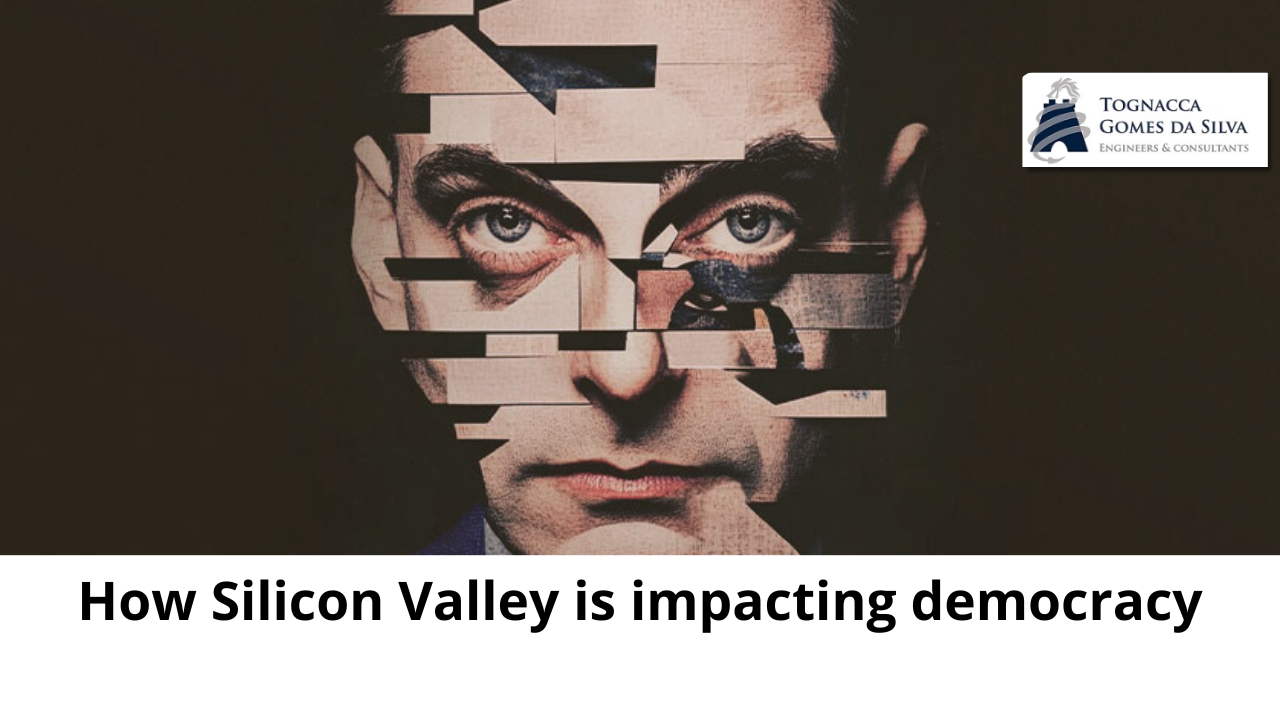The internet loves a good neologism, especially if it can capture a changing trend or explain a new phenomenon. In 2013, columnist Adrian Wooldridge coined a word that would ultimately do both. Writing in the Economist, he warned of the impending “techlash,” a revolt against the rich and powerful of Silicon Valley, fueled by the growing public perception that these “sovereigns of cyberspace” were not – as they once claimed – the benevolent bearers of a bright future.
Although Wooldridge did not specify exactly when this techlash would arrive, it is clear today that a dramatic shift in public opinion toward Big Tech and its leaders has indeed occurred — and is possibly still ongoing. Say what you want about Elon Musk’s legions of followers on X, but if an industry and its executives can unite figures like Elizabeth Warren and Lindsey Graham in shared condemnation, they’re definitely not winning many popularity contests.
To be clear, there have always been critics of Silicon Valley’s very real excesses and abuses. But for most of the past two decades, many of these dissenting voices have been dismissed as irredeemable Luddites and enemies of progress or drowned out by a larger and louder group of techno-optimists. Today, those same critics (along with many new ones) have returned to the arena, rearmed with popular Substacks, media columns, and, increasingly, book deals.
Two of the most recent additions to the burgeoning techlash genre — Rob Lalka’s The Venture Alchemists: How Big Tech Turned Profits into Power and Marietje Schaake’s The Tech Coup: How to Save Democracy from Silicon Valley — serve as blunt reminders of why, First of all, this reaction started. Together, the books (both untranslated into Portuguese) chronicle the rise of an industry that is using its wealth and power to undermine democracy. They also outline what we can do to start taking back some of that power.
In The Venture Alchemists, Lalka, a business professor at Tulane University, focuses on how a small group of entrepreneurs managed to transmute a handful of innovative ideas and bold bets into unprecedented wealth and influence. While the names of these demigods of disruption will probably be familiar to anyone with access to the internet and some interest in Silicon Valley, Lalka begins his book with a page that displays nine (mostly) young and (mostly) smiling faces.
Among the photos are famous founders Mark Zuckerberg, Larry Page and Sergey Brin; venture capitalists Keith Rabois, Peter Thiel and David Sacks; and a more diverse trio made up of former Uber CEO Travis Kalanick, ardent eugenicist and considered father of Silicon Valley Bill Shockley (who, it’s worth noting, died in 1989), and a former venture capitalist and future vice president. President of the United States, JD Vance.
Throughout the book, Lalka takes this hodgepodge of tech titans and uses their origin stories and networking to explain how the so-called Silicon Valley mentality (mind virus?) became not just a feature of Santa Clara County, California , but also the predominant way of thinking about success and innovation across America.
This approach to doing business, often shrouded in an avalanche of embarrassing innovation jargon — disrupt or be disrupted, move fast and break things, better to ask for forgiveness than permission — can often mask a darker, more authoritarian ethic, according to Lalka.
One of the nine entrepreneurs highlighted in the book, Peter Thiel, wrote that “I no longer believe that freedom and democracy are compatible” and that “competition [in business] is for losers.” Others believe that all technological progress is inherently good and should be pursued at any cost. Some also view privacy as an antiquated concept — even an illusion — and think their companies should be free to hoard and profit from our personal data. Above all, Lalka argues, these men believe that their newfound power should be unfettered by governments, regulators, or anyone who dares to impose limitations.
Where exactly do these beliefs come from? Lalka points to people like the late economist and free-market advocate Milton Friedman—who famously argued that a company’s only social responsibility is to increase profits—as well as Ayn Rand, the author, philosopher, and icon of misunderstood teens who tried to transform selfishness into a virtue.
It’s a somewhat reductionist and not completely original explanation of Silicon Valley’s libertarian leanings. What really matters, however, is that many of these “values” were subsequently encoded into the DNA of the companies these men founded and funded — companies that today shape how we communicate, how we share and consume news, and even how we think about our place. in the world.
The strength of The Venture Alchemists is describing the early-stage antics and campus controversies that shaped these young entrepreneurs—or, in many cases, simply revealed who they always were. Lalka is a meticulous and tenacious researcher, as the 135 pages of notes at the end of the book suggest. And although almost all of these stories have been told before in other books and articles, he still manages to offer new perspectives from sources like university newspapers and leaked documents.
One thing the book does particularly effectively is deflate the myth that these entrepreneurs were somehow seers with a vision for the future that the rest of us couldn’t understand or predict.
Sure, someone like Thiel made what turned out to be a shrewd investment in Facebook early on, but he also made some very costly mistakes with that stake. As Lalka points out, Thiel’s Founders Fund sold tens of millions of shares shortly after Facebook went public, and the CEO himself went from owning 2.5% of the company in 2012 to 0.000004% less than a decade later (per around the same time Facebook reached its trillion-dollar valuation). Add to this his objectively dire predictions in 2008, 2009 and beyond—when he effectively bet against one of the longest bull markets in world history—and one gets the impression that he is less an oracle and more an ideologue who, by chance, , took big risks and had some returns.
One of Lalka’s favorite mantras throughout The Venture Alchemists is that “words matter.” In fact, he uses many of these entrepreneurs’ terms to expose their hypocrisy, bullying, youthful “contrarianism,” casual racism, and—yes—blatant greed and self-interest. It’s not a flattering image by any stretch of the imagination.
Unfortunately, rather than simply letting these words and actions speak for themselves, Lalka feels the need to chime in with her own comments, repeatedly asking readers to refrain from pointing fingers or judging these men too harshly, even after recounting their countless transgressions. Whether trying to convey an appearance of objectivity or simply reminding readers that these entrepreneurs are complex individuals facing difficult decisions, this approach doesn’t work. Not at all.
On the one hand, Lalka clearly has strong opinions about the behavior of these entrepreneurs — opinions that he doesn’t try to disguise. At one point in the book, he suggests that Kalanick’s “dominance at any cost” approach to running Uber is “almost but not quite” rape (a comparison one would be unlikely to make if he wanted to appear to be an impartial arbiter). And if he really wants readers to come to a different conclusion about these men, he certainly doesn’t provide much reason to do so. Simply saying “judge less and discriminate more” seems worse than an avoidance of responsibility. It sounds “almost but not quite” like blaming the victims — as if we are somehow as guilty as they are for using their platforms and buying into their heroic narratives.
“In many ways, Silicon Valley has become the antithesis of what its original pioneers sought to be.”
—Marietje Schaake
Equally frustrating is the crescendo of empty platitudes that closes the book. “The technologies of the future must be pursued thoughtfully, ethically and cautiously,” says Lalka, after spending 313 pages showing how these entrepreneurs deliberately ignored the three adverbs. What they have built, instead, are enormous wealth creation machines that divide, distract and spy on us. Maybe it’s just me, but this kind of behavior seems ripe not just for judgment but also for action.
So what exactly does one do with a group of men seemingly incapable of serious self-reflection — men who believe, without a shadow of a doubt, in their own greatness and feel comfortable making decisions on behalf of hundreds of millions of people who don’t know them? elected and who do not necessarily share their values?
You regulate them, of course. Or at least regulate the companies they manage and finance. In The Tech Coup, by Marietje Schaake, readers find a roadmap for how this regulation might take shape, along with a revealing account of how much power has already been ceded to these corporations over the last 20 years.
There are companies like NSO Group, whose powerful Pegasus spyware tool was sold to autocrats who in turn used it to suppress dissent and monitor critics. Billionaires are now effectively making national security decisions on behalf of the United States and using their social media companies to promote right-wing unrest and conspiracy theories, as Musk does with his Starlink satellites and the X platform. They use their own systems as propaganda tools and funnel hundreds of millions of dollars into ballot initiatives to repeal laws they don’t like. The list goes on. According to Schaake, this disproportionate and largely unchecked power is fundamentally changing the way democracy works in the United States.
“In many ways, Silicon Valley has become the antithesis of what its original pioneers sought to be: from discarding government to literally taking on equivalent functions; from praising freedom of expression to becoming curators and regulators of speech; and from criticizing government abuses of power to accelerating them through spyware tools and opaque algorithms,” he writes.
Schaake, a former member of the European Parliament and current director of international policy at Stanford University’s Cyber Policy Center, is in many ways the perfect chronicler to chronicle Big Tech’s takeover. In addition to her clear expertise in the fields of governance and technology, she is also Dutch, which makes her immune to the distinctly American disease that seems to equate extreme wealth — and the power that accompanies it — with virtue and intelligence.
This resistance to the various reality distortion fields emanating from Silicon Valley plays a crucial role in their ability to see through the many self-serving justifications and solutions that come from technology leaders themselves. Schaake understands, for example, that when someone like OpenAI’s Sam Altman goes to Congress and begs for regulation of AI, what he’s really doing is asking Congress to create a sort of “regulatory divide” between his company and others. startups that might threaten it — and not acting out of a genuine desire for government accountability or limits.
Like Shoshana Zuboff, author of The Age of Surveillance Capitalism, Schaake believes that “the digital” must “live within the house of democracy” — that is, technologies must be developed within the democratic framework, and not the other way around. To achieve this realignment, it offers a range of solutions, from banning what it considers clearly undemocratic technologies (such as facial recognition software and other spying tools) to creating independent teams of expert advisors for members of Congress (who often lack the necessary preparation to understand technologies and business models).
Predictably, all this renewed interest in regulation has culminated in a sharp backlash in recent years — a kind of “technological revanchism,” to borrow a phrase from journalist James Hennessy. In addition to the familiar attacks, like trying to portray techlash advocates as anti-technology (which they are not), companies are also spending massive amounts of money to bolster their lobbying efforts.
Some venture capitalists, such as LinkedIn co-founder Reid Hoffman, who donated heavily to Kamala Harris’ presidential campaign, wanted to remove Lina Khan, chair of the Federal Trade Commission (FTC). They claimed that regulation is killing innovation (it isn’t) and removing incentives to start a company (not the case). And, of course, there’s Musk, who appears to be in a league of his own when it comes to how much he can influence Donald Trump and the government with which his companies have valuable contracts.
What all these claims of victimhood and subsequent efforts to buy our way out of regulatory oversight ignore is that there is, in fact, a vast and fertile middle ground between simple techno-optimism and techno-skepticism. As New Yorker contributor Cal Newport and others have noted, it is perfectly possible to support innovations that can significantly improve our lives without accepting that every popular invention is good or inevitable. Regulating Big Tech will be substantial in balancing the playing field and ensuring that the basic duties of a democracy can be fulfilled. But as Lalka and Schaake suggest, another battle may prove even more difficult and contentious: undoing the flawed logic and cynical, authoritarian philosophies that have gotten us to the point we are at now.
What if we admitted that constant bacchanals of disruption are, in fact, not so good for our planet or our minds? What if, instead of “creative destruction,” we began to value stability, and instead of putting “dents in the universe,” we redirected our efforts to fixing what is already broken? What if — and bear with me on this — we admitted that technology may not be the solution to all the problems we face as a society, and that while innovation and technological change can undoubtedly bring social benefits, they need not be the only ones measures of economic success and quality of life?
When ideas like these start to sound less like radical concepts and more like common sense, we’ll know that techlash has finally achieved something truly revolutionary.
Bryan Gardiner is a writer based in Oakland, California.
( fonte: MIT Technology Review)



